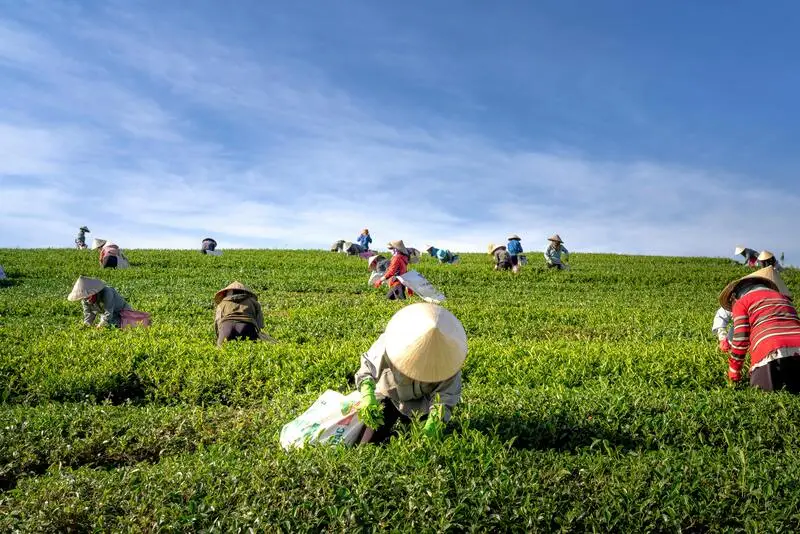As SA’s unemployment statistics show marginal improvement, the agricultural sector offers hope to achieve lasting gains. But that will require partnerships and a united sense of purpose right across the industry, writes Van Der Byl Roux, Corporate Strategy and Development Specialist at Al Mabroor Projects.
South Africa remains in a deep youth-unemployment crisis. The Statistics SA Quarterly Labour Force Survey for Q3 of 2024 reports a slight improvement to 32,1% total unemployment in South Africa. However, there remains a catastrophic 60,2% unemployment rate among youths aged 15 – 24, and a 40.4% unemployment rate in the 25 – 34 age group.
This is highly concerning, for the extreme levels of social instability that it brings with it. These figures must be giving the government sleepless nights.
What makes the situation even more concerning is that sectors that previously had high labour absorption rates are now also seeing significant drops in employment.
In the agriculture sector, for instance, the third quarter of 2024 saw an incremental rise to 935 000 in the number of people employed in the industry. This number is dwarfed by the 11,6 million employed in the formal, non-agricultural sector.
The sector has seen drastic structural changes. Technology improvements have led to higher automation and labour replacement in the sector – particularly on the fresh produce side.
The livestock sector is less exposed to these automation trends, but it is also not as labour-intensive a sector. Livestock management does require higher levels of skill and expertise than produce harvesting, however.
To unlock the full potential of agriculture as a modern engine of growth and employment, it requires education and training institutions that are fit for purpose.
South Africa’s system of training colleges, which provided industry-relevant practical and theoretical knowledge has been discontinued. Our TVET colleges have yet to fill this gap effectively.
Large agriculture businesses have responded by establishing their own training programmes. Unfortunately, this is an option only open to the so-called “mega-producers”, and relatively few farmers have access to such resources.
Developing the industry is about more than just training, however. There is now almost universal agreement that agriculture needs further transformation, to give more emerging farmers access to opportunities.
The question is how to do that effectively.
We have learned that if subsistence farmers are to become empowered, and make the transition to commercial farmers, they need four things:
Ensuring that these requirements are met requires partnerships between industry stakeholders – major producers, emerging farmers, marketers, logistics providers and investors, especially.
At Al Mabroor Projects, we have taken this partnership approach to heart. One such project is the Rafi initiative, a public-private partnership with the Eastern Cape government in the Chris Hani district.
As a Shariah-compliant investment company with major holdings in the agriculture sector, we are able to support subsistence farmers in making the transition to being independent, self-funding commercial farmers.
Many emerging farmers have received land grants from the government, but require further support in order to succeed. We have designed partnerships that can provide the finance, the working capital and the market access to make these operations sustainable.
Besides funding solutions, we have been able to facilitate support with seeds, machinery and fertiliser. In terms of livestock, we can offer advice on breeding programmes, and how to use genetics to improve quality.
Our feed specialists are also able to design specific formulations for the particular needs of animals in those areas. We have seen significant improvements in yield and meat quality, and the project is gaining momentum.
Given our established client networks, we are also able to act as buyers for these emerging farmers, providing pricing guidelines at the outset, so the process remains transparent and there are predictable outcomes for all.
Such relationships can help drive further industry growth, if rolled out at scale, and ultimately help to address the country’s unemployment challenge.
Vertical integration through partnerships can also support biosecurity, which is now non-negotiable in our industry. Control and visibility of the entire supply chain is critical to being able to protect the herd from disease, guarantee global markets, and ensure the stability of our industry.
Agriculture is an industry that operates over long-time frames. There can therefore be no quick fixes, if we are to revitalise our sector and turn it into a stable, growing industry that creates work and sustainable careers for thousands more young people.
It will need state support, and government has the levers to achieve this. There are great opportunities to drive growth by helping the private sector to thrive by unlocking infrastructure bottlenecks.
These include challenges like degraded road networks, rail-freight limitations, poorly run ports, as well as water-supply failures. Government can also better manage the formalities of international trade, for instance by approving export protocols for our agricultural products.
Some of these are easy wins. Others are more complex, but we must work together to ensure they are resolved for the benefit of all South Africans.
The agricultural sector is innovative and self-reliant, but no industry can do it alone. Our sector will need support from government to unlock its full potential as a source of food security, a foreign-exchange earner, and a generator of employment for our young people.



